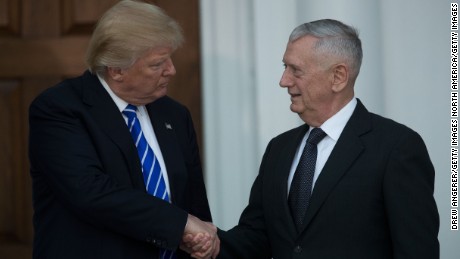With the nomination of General James “Mad Dog” Mattis as the new U.S. Secretary of Defense, many are wondering how, if appointed, General Mattis will influence a Trump Administration concerning U.S. relations with China.
In August, General Mattis co-authored a report along with Kori Schake and Jim Ellis, all fellows at the Hoover Institution, entitled “A Blueprint for American Security.” In the report, the authors criticize the last three administrations for a perceived lack of national security vision, saying those leaders have largely ignored threats posed by Russia, China and terrorist groups worldwide. In the report, the coauthors refer to predatory states that prize their own sovereignty but destroy that of others—in particular, Russia, China and Iran:
“The priority challenges we would confront are: Russian belligerence, Chinese activities in the South China Sea, ISIS and Iranian aggressiveness, and drug-gang activity south of our border.”
“China chips away at others’ sovereignty in Asia.”
“China is doing the same, demanding veto authority over the rights of its neighbors in the South China Sea. This behavior follows a classical Chinese “tribute” model that demands deference from “lesser” nations in Beijing’s sphere of interest.”
“nuclear rearmament and proliferation, respectively, back in fashion for the saber-rattling Russians and expansive Chinese”
“America’s foreign policy objective should be to reassert an order conducive to our security and that of our allies.”
“Even long-term friends of our country are hedging their bets, questioning the reliability of our partnership.”
Finally, last year Mattis called for a “policy to build the counterbalance if China continues to expand its bullying role in the South China Sea.”
When President-elect Trump announced his selection of Mattis as secretary of defense, Trump referred to him as “Mad Dog Mattis,” which could be read as foreshadowing a more aggressive defense policy, including toward China.
In recent days we have seen Trump taking a more combative position toward China, asserting his right to take a call from Taiwan’s president and calling into question the U.S. adherence to the long-standing “One China” policy.
While Trump may have calmed some nerves by appointing Iowa Governor Terry Branstad as the new U.S. ambassador to China, who is a “long time friend” of Chinese President Xi Jinping, we really won’t know what actions the new U.S. president will take until after his inauguration January 20.
Until then, we can expect more soundbites and tweets which disturb the international order (and more counter punches from Beijing) making for more interesting dinner conversations.
